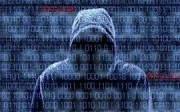Communication Security with Server Cloaking
The debate that began with the introduction of a new Investigatory Powers Bill in the Queen’s Speech earlier this year is still raging. It raises a number of questions about exactly how online communication and security is able to be maintained and protected when you consider the reduction in encryption that is being introduced. By providing virtual back doors across the digital world can you ever really have a secure network? And does unveiling the threats that encryption covers up outweigh the potential risks for personal data? The argument is likely to continue for some time.
One of the biggest risks comes from storage. It has been assumed that the telecoms and internet providers will be the ones asked to store and protect the vast quantity of personal communications that will be required to enable the success of such a bill. Emails, social media activity, text messages, voice calls and browsing are all areas that will require ‘secure’ storage. Are they up to the task, and should they even be responsible?
State mandated backdoors and data retention rulings are likely to see large businesses leave these shores, with intellectual property, audit information and confidential data all under threat of exposure thanks to the government’s new legislation. A huge drop in corporate taxes and jobs would be inevitable, with major headquarters moving to more secure locations.
It would also mean the end for online banking and digital communications that rely on passwords or PIN codes, with security severely compromised. Pattern recognition for authentication is a cheap and reliable alternative, but a major lifestyle change.
One inevitable change should the bill be continued will be the introduction of Server Cloaking to more and more businesses who do stay put. Cloaking protects by making the servers ‘go dark’, meaning you are able to hide them and therefore keep them secure. Only those who are allowed visibility will be able to see the server, making them impossible to hack. Whether on-site or cloud based, Server Cloaking deploys without disruption to your infrastructure, protects data in motion and quickly reacts and adapts to critical requirements. At Digital Pathways we use a product named Stealth, an innovative, software-based security solution.
Giving companies this additional security allows them to remain protected against the risks that new legislation will inevitably bring and keep themselves and their data well hidden. The hackers that this bill is intended to protect us from will adapt, as ever, leaving only small time crooks and, importantly, the public to suffer. By taking the added measure of installing Server Cloaking, you are able to make sure that once the ‘baddies’ do adapt, it is not your servers that suffer.





